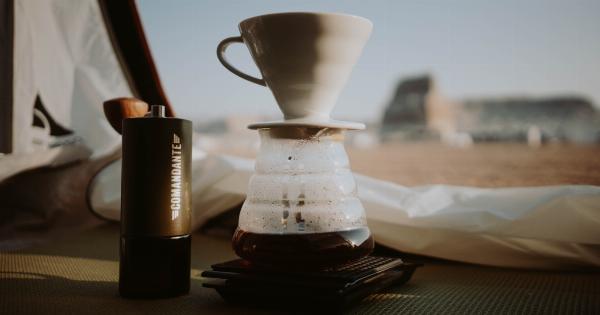Gallstones are a common health issue affecting millions of people worldwide. These small, hardened deposits in the gallbladder can cause intense pain and other complications if left untreated.
While there are various treatment options available, prevention is always better than cure. In this article, we will explore a secret drink that can help reduce the risk of developing gallstones naturally.
Understanding Gallstones
Gallstones are solid particles that form in the gallbladder, a small organ located beneath the liver. The gallbladder stores bile, a substance produced by the liver to aid in the digestion of fats.
When the components of bile, including cholesterol, bilirubin, or bile salts, become imbalanced, gallstones may form.
There are two main types of gallstones:.
1. Cholesterol Gallstones
Cholesterol gallstones are the most common type, comprising about 80% of all gallstones. They form when bile contains too much cholesterol and not enough bile salts or pigments to keep it in a liquid state. These stones are usually yellow-green in color.
2. Pigment Gallstones
Pigment gallstones are less common and usually darker in color. They are formed when the bile contains excessive amounts of bilirubin, a yellow pigment produced during the breakdown of red blood cells.
Pigment gallstones can also occur if the gallbladder does not empty properly or if the bile ducts are blocked.
The Importance of Preventing Gallstones
Gallstones can cause various health problems and complications if left untreated. The most common symptoms include:.
1. Abdominal Pain
One of the primary symptoms of gallstones is severe abdominal pain commonly referred to as a gallbladder attack. The pain can occur in the upper abdomen or the right shoulder and can last for several hours.
2. Jaundice
If a gallstone blocks the bile duct, it can lead to jaundice, a condition characterized by yellowing of the skin and eyes. This happens when bilirubin, which is not properly eliminated through bile, builds up in the body.
3. Inflammation and Infection
Gallstones can cause inflammation of the gallbladder, known as cholecystitis, which leads to intense pain, fever, and nausea. If the gallstone obstructs the bile ducts, it can also result in a severe infection known as cholangitis.
Risk Factors for Gallstones
Several factors contribute to an increased risk of developing gallstones. These include:.
1. Gender
Women are more prone to gallstones compared to men, especially during pregnancy or while taking hormonal birth control pills.
2. Age
Gallstones are more common in older adults, with the risk increasing with age.
3. Obesity
Excess weight, particularly around the waistline, is a significant risk factor for gallstones.
4. Diet
A diet high in cholesterol, fat, and low in fiber may contribute to gallstone formation.
5. Rapid Weight Loss
Losing a large amount of weight quickly can increase the risk of gallstones.
The Secret Drink to Reduce Gallstone Risk
While there is no surefire way to prevent gallstones, adopting a healthy lifestyle can significantly reduce the risk. Incorporating a secret drink into your daily routine may provide added protection against gallstones.
Here’s the recipe for the secret drink:.
Ingredients:
– 1 lemon.
– 1 cucumber.
– 1-inch ginger root.
– A handful of fresh mint leaves.
– 2 liters of water.
Instructions:
1. Slice the lemon and cucumber into thin rounds.
2. Peel the ginger root and cut it into small pieces.
3. In a large pitcher, combine the lemon, cucumber, ginger, and mint leaves.
4. Fill the pitcher with 2 liters of water.
5. Stir well and refrigerate the drink overnight to allow the flavors to infuse.
How Does the Drink Work?
This secret drink works by combining various ingredients known for their beneficial properties.
1. Lemon
Lemons are rich in vitamin C and antioxidants that help break down cholesterol in the gallbladder, preventing the formation of gallstones.
2. Cucumber
Cucumbers are hydrating and contain compounds that assist in flushing out toxins from the body. They also promote healthy liver function.
3. Ginger
Ginger has anti-inflammatory properties that can help reduce inflammation in the gallbladder and improve digestion.
4. Mint Leaves
Mint leaves aid in digestion, soothe the stomach, and may help alleviate gallbladder-related symptoms.
By combining these ingredients in a refreshing drink, you not only stay hydrated but also support your gallbladder’s health.
Other Tips to Reduce Gallstone Risk
In addition to consuming the secret drink regularly, here are some tips to further reduce your risk of developing gallstones:.
1. Maintain a Healthy Weight
Losing excess weight and maintaining a healthy BMI can significantly reduce the risk of gallstones.
2. Eat a Balanced Diet
Include plenty of fiber-rich foods such as fruits, vegetables, whole grains, and lean proteins in your diet. Limit your intake of saturated fats, cholesterol, and processed foods.
3. Stay Active
Regular physical activity helps regulate weight, improve digestion, and maintain overall health.
4. Avoid Rapid Weight Loss
Avoid crash diets or rapid weight loss programs, as these can contribute to gallstone formation. Gradual and sustainable weight loss is recommended.
5. Hydrate Well
Drink an adequate amount of water throughout the day to keep yourself hydrated and promote healthy digestion.
Conclusion
Gallstones can be painful and potentially dangerous if left untreated. While there is no surefire way to prevent gallstones, adopting a healthy lifestyle, including the consumption of the secret drink mentioned in this article, can reduce the risk.
Remember to consult with your healthcare provider for specific advice and guidance tailored to your individual needs.






























